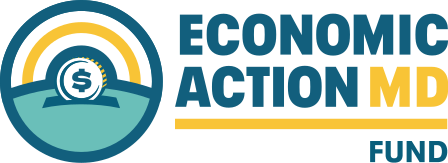News
Maryland Medical Debt: Insurance, Maryland’s Wins and National Trends
For Marylanders who receive their health insurance through the state exchange, the increase in costs is sickening. Insurers who offer policies on the state exchange are seeking 17% increases in premiums for individuals to cope with expected cuts in federal funding. These rising costs may make health insurance unaffordable for many working families with some officials estimating that 70,000 may forgo health insurance, increasing their risk of developing high medical debt.
Insurance is one of many significant drivers of runaway healthcare costs and medical debt. On Monday, the Lown Institute released Past Due: How Medical Debt is Harming Americans and the Solutions We Need Now. Our Executive Director, Marceline White, is a member of the Work Group that developed the report and Economic Action Maryland Fund is a supporting organization of the report. The report provides an overview of research on the prevalence, drivers, and solutions around medical debt.
Economic Action Maryland Fund celebrated three important legislative victories to reduce medical debt this past legislative session:
- HB268/SB981 — This legislation expands the definition for what is considered medical debt to include co-payments, coinsurance, and deductibles for medical costs. This will expand the number of patients who may qualify for financial assistance. It also establishes statewide standards for discounted care for patients with income at 500% of the Federal Poverty Level, with established discounts at different levels to create clarity, consistency, and fairness across Maryland hospital systems. The legislation also bans hospitals from suing patients for medical debt of $500 or less which will help approximately 3,100 patients a year, most who live in low-income neighborhoods or communities of color.
- HB1020/SB614 — Bans reporting of medical debt to credit reporting agencies. No one will have their credit tanked because they or a loved one needed medical care. By removing medical debt from credit scores, many individuals will have greater access to credit.
- HB428/SB349 — Bans liens on homes for outpatient medical debt. No one will have a lien placed on their home due to medical debt which means working families will still be able to refinance their homes or qualify for home improvement loans.
Maryland has some of the strongest protections for patients with medical debt in the country. We’re proud of the work we’ve done to end medical debt but there is more work to be done. This summer we will be updating our Guide to Medical Debt and preparing for more legislation to protect patients from medical debt next session.
